
English | 中文

Ten findings of CSR practices in China revealed
source:goldencsr date:2021-08-17 11:00:46On June 10, 2021, Guan Zhusun, Executive Vice President and Chief Operating Officer of GoldenBee Consulting, shared the key findings of the GoldenBee CSR Research Report and the latest CSR development of Chinese enterprises at the 16th International CSR Forum.
The annual GoldenBee CSR Research Report is based on questionnaire survey on enterprises. They voluntarily filled in questionnaires and also provided their social responsibility practices. A total of 320 valid questionnaires and 68 typical cases of responsible competitiveness were received in 2020. Among them, state-owned and state-controlled enterprises account for 40%, private enterprises for nearly 50%, and the rest are foreign investment and Hong Kong, Macao and Taiwan enterprises. Enterprises from Eastern China account for nearly 50%, and the rest are central and western enterprises. The proportion of manufacturing enterprises is the highest of all.
The Evaluation System of GoldenBee CSR Research Report could be concluded as WECA: willingness, engagement, communication, action.
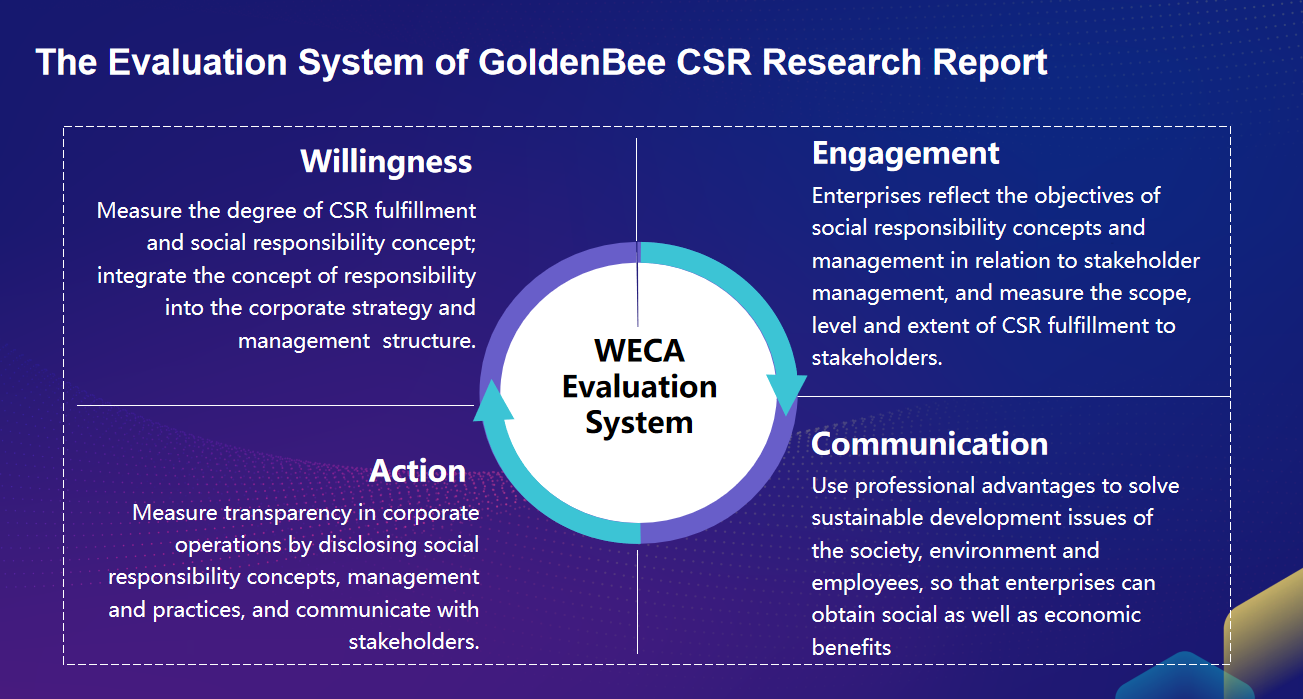
According to the analysis of the GoldenBee WECA System, the CSR composite index decreased by 2%, which is mainly reflected in the communication and CSR performance of stakeholders: the CSR composite index generally showed an upward trend and showed different development characteristics during the three five-year planning periods.
Enterprises maintain stable in social responsibility strategy and governance, and the CSR fulfillment to stakeholders decrease. The level of information disclosure decreased more significantly, and the responsible competitiveness practices increase slightly.

Finding I: The CSR composite index of state-owned enterprises and state-controlled enterprises rises against the trend.
The SASAC and the central SOEs implement the policy of the CPC Central Committee and the State Council on advancing stability on the six fronts and security in the six areas:

Serve the front line of COVID-19 response and take a lead in promoting the resumption of work and production

Collaborate with all stakeholders to innovate and overcome difficulties, and enhance the stability of the supply chain and the industry chain

Resolutely implement the policy of reducing fees and contribute to the protection of market players and social productivity

Contribute to securing a decisive victory in building a moderately prosperous society in all respects and poverty elimination
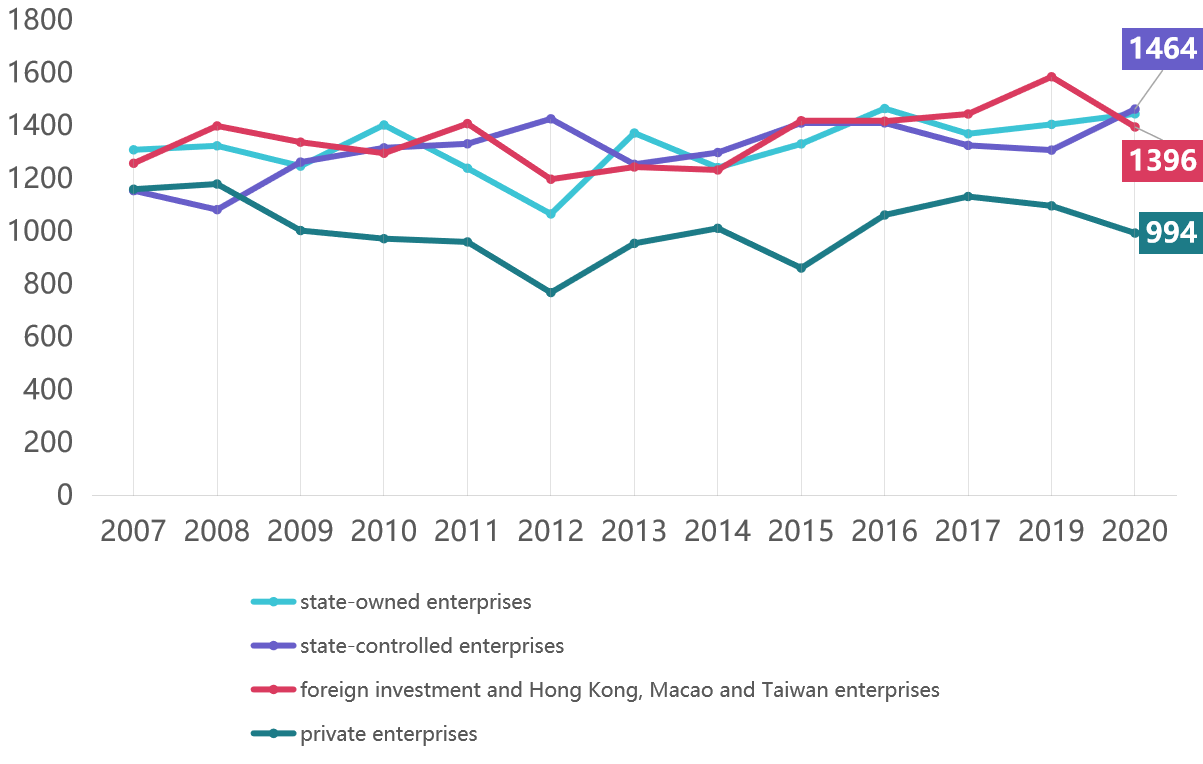
Finding II: The CSR composite index of power and engineering industries increases, while the mining, manufacturing, storage and transport and financial industries decreases.
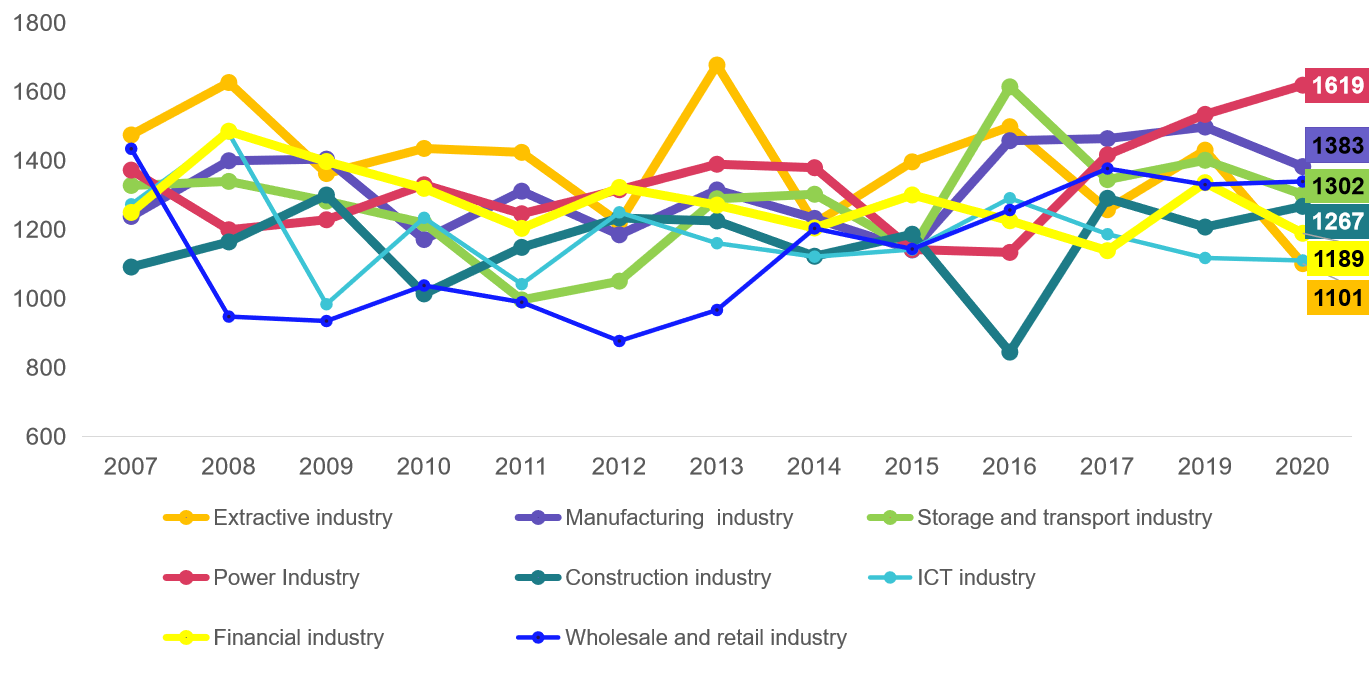
Finding III: Enterprises maintain strategic emphasis on CSR
The proportion of enterprises that announced their social responsibility strategies and joined social responsibility organizations increased slightly.
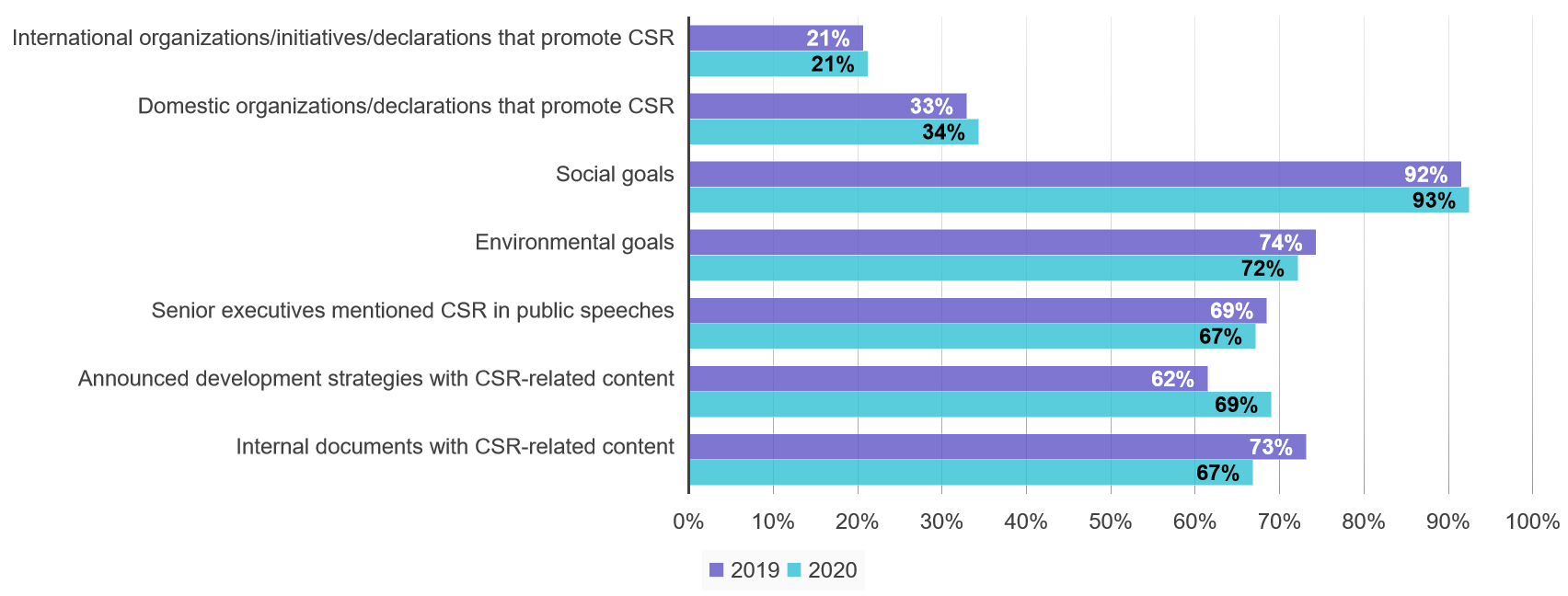
Finding IV: CSR leadership and daily management indicators fluctuate.
There is no significant change in the engagement of CSR affair by the management. More than 80% of enterprises have arranged personnel to be responsible for daily social responsibility management, of which more than half are part-time personnel.
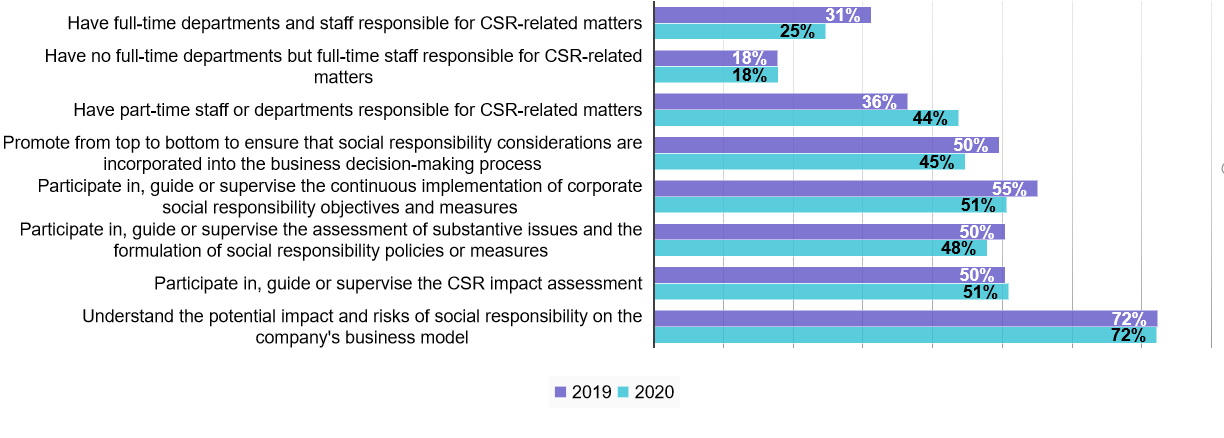
Finding V: The proportion of enterprises with losses increases significantly, and the shareholder index decreases significantly.
During COVID-19, some enterprises' production was limited and their profitability decreased, but their awareness of responsible investment increased.
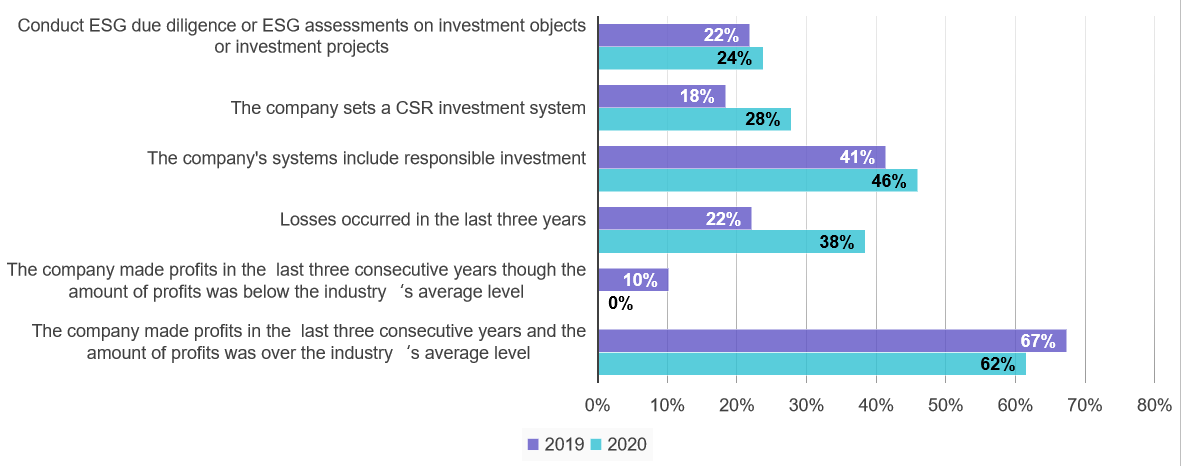
Finding VI: The customer and employee indices decreases.
The customer index decreased by 9%, and enterprises reduced their practice in sustainable product and service R&D and customer privacy protection.
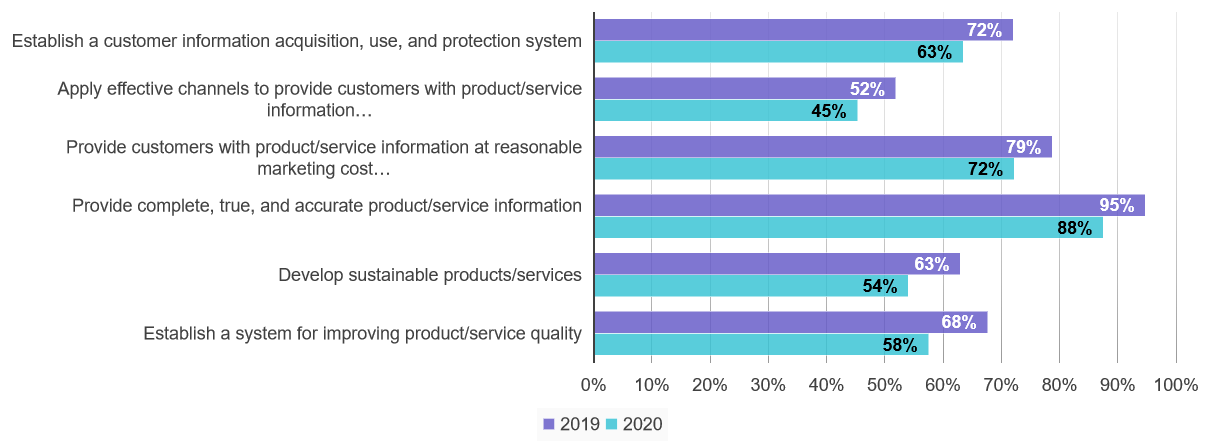
The employee index decreased by 6%, and the score rate in strengthening training development and democratic management decreased significantly; There are no obvious changes in labor and capital, health and safety, social security and welfare.
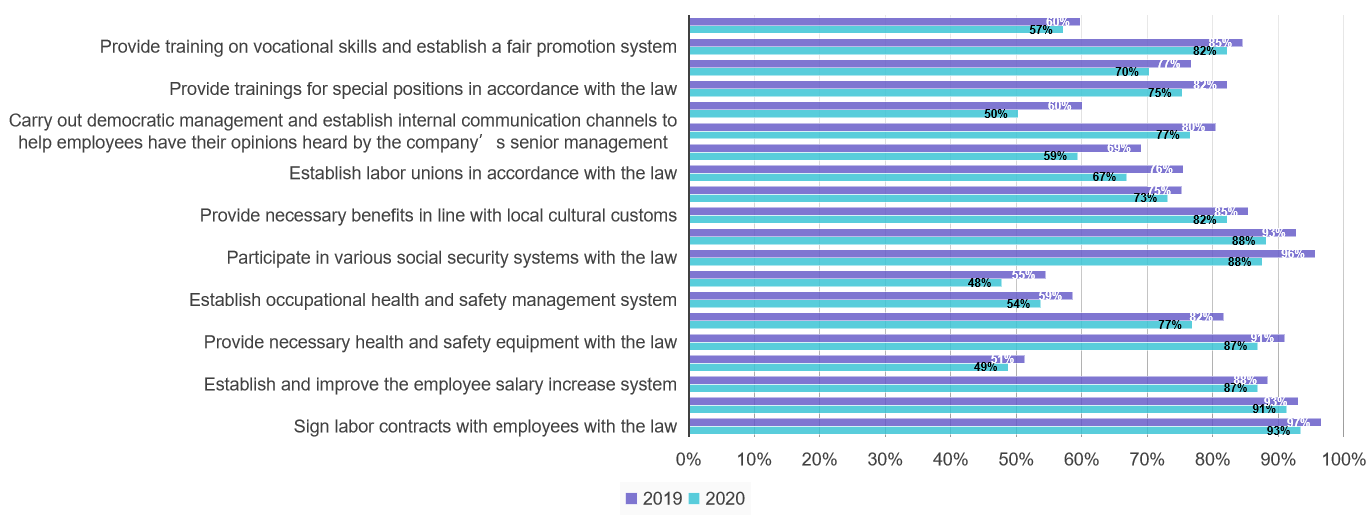
Finding VII: Supplier index develops steadily
The supplier index decreased from 1,153 in 2019 to 1,140 in 2020. Enterprises promote the development of the responsible supply chain by "Sharing the increased costs of suppliers’ social responsibility certification", "Encouraging suppliers’ CSR fulfillment by maintaining or increasing orders" and so on.
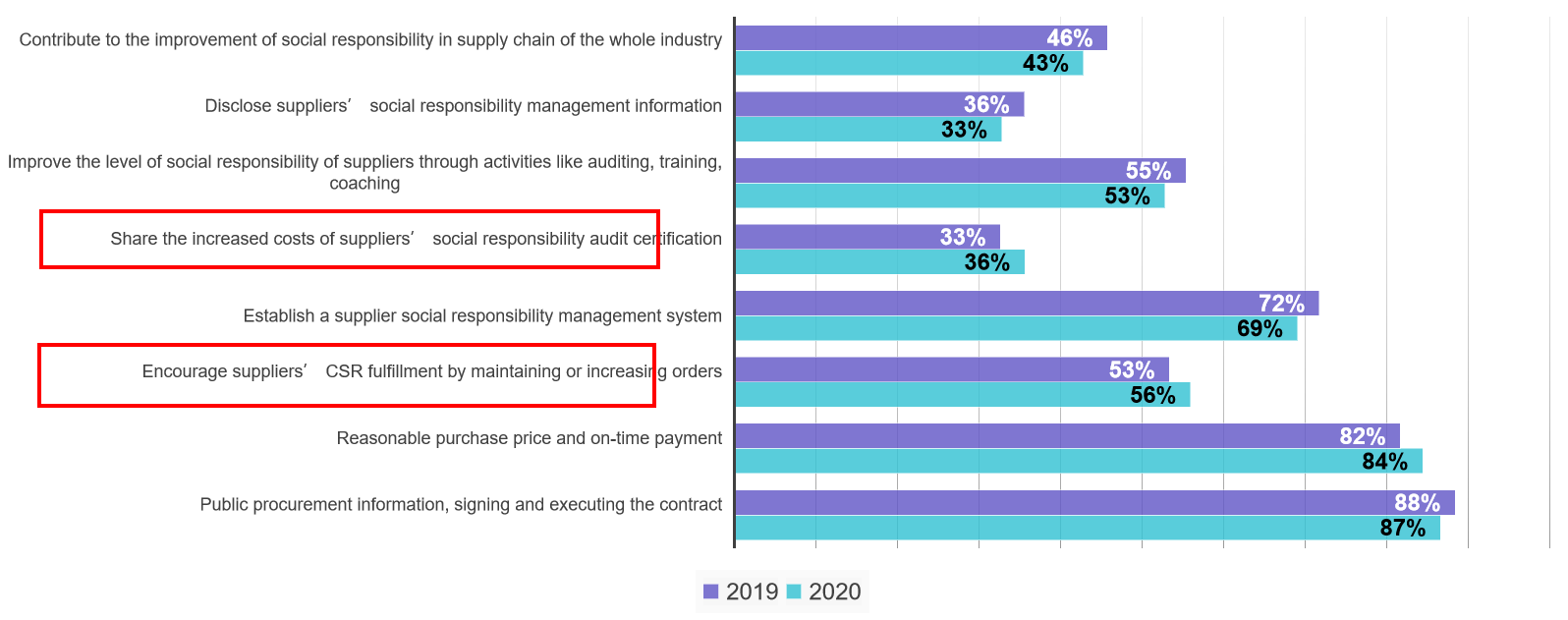
Finding VIII: The community index decreases slightly
The community index decreased by 5%, and the score rates of "increasing employment opportunities for vulnerable groups in the community" and "respecting and protecting community cultural traditions and heritage" increased slightly compared with the same period in 2019 The above characteristics are in line with the actions to support poverty alleviation by consumption, employment and improvement of rural civilization called for by the state in 2020 in order to reduce the COVID-19 impact on poor areas.
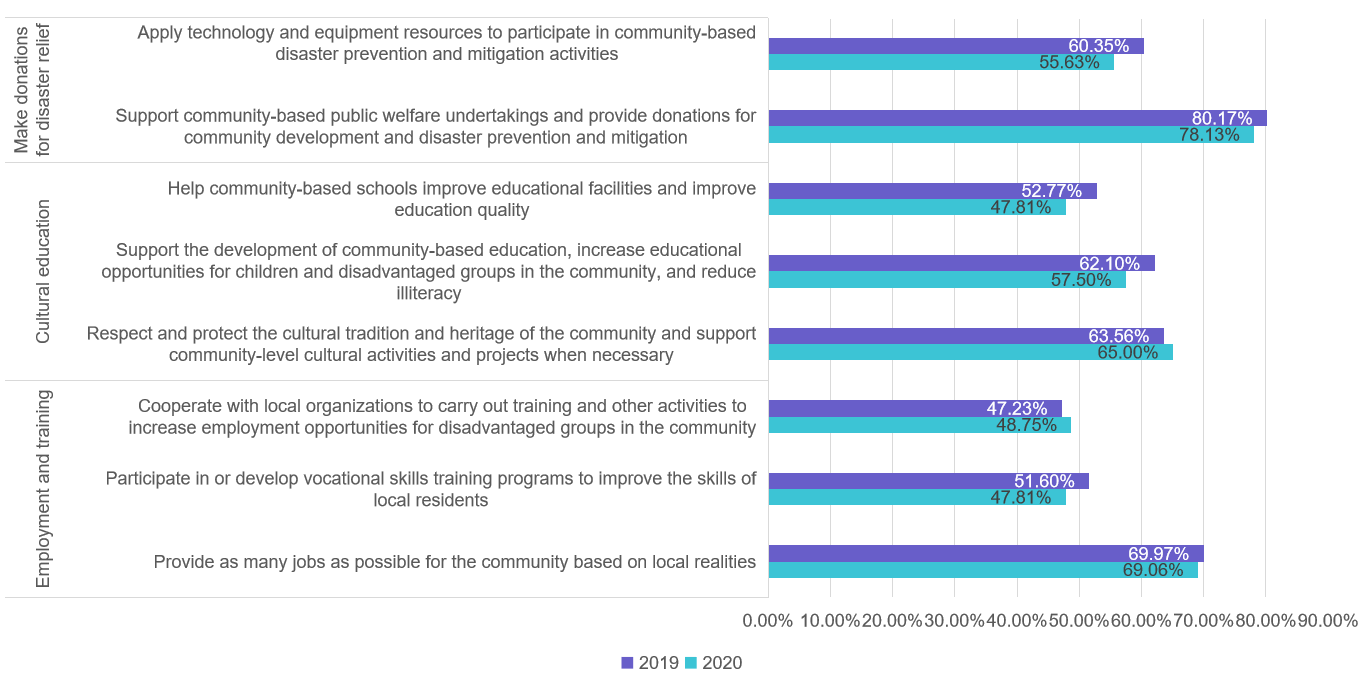
Finding IX: The CSR information disclosure of growing enterprises needs to be strengthened.
A considerable number of SMEs’ CSR information disclosure has not yet started, and 15% of growing enterprises' CSR information disclosure score is 0; the proportion of enterprises that disclose CSR information has decreased.
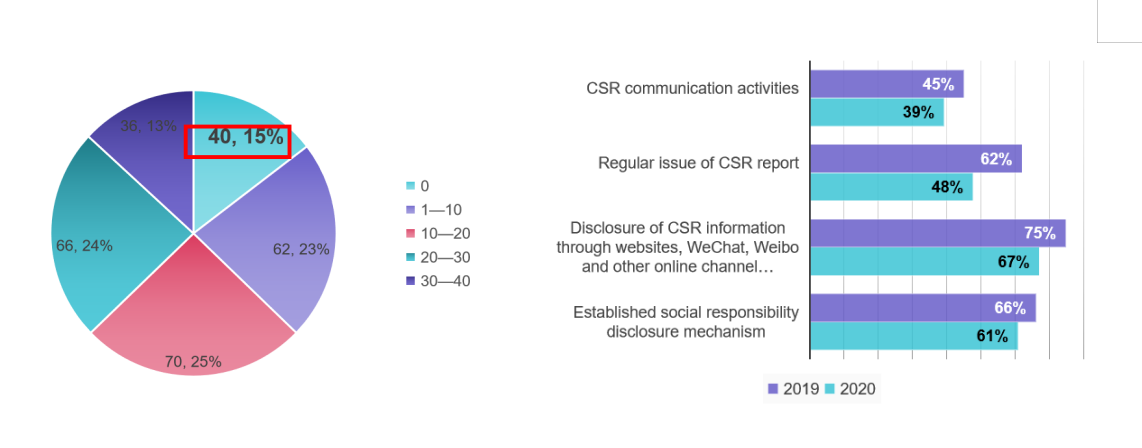
Finding X: The case practice focuses on sustainable products/services, communities and environment
The average score of responsible competitiveness practice increased slightly, and the score on replicability decreased significantly, indicating that the differentiated advantage and innovation of CSR practice are more prominent;
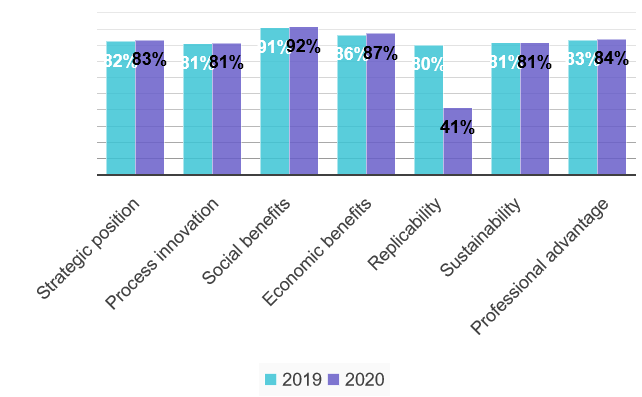
The practice theme of responsible competitiveness focuses on community, sustainable products and services and environment. The participating enterprises are mainly SMEs, and the responsible practice is more pragmatic.
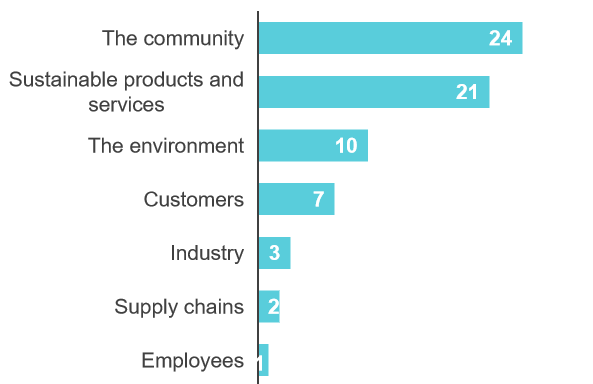
First, carry forward the social responsibility of state-owned enterprises: continue to carry forward the responsibility of state-owned and state-controlled enterprises in times of crisis to ensure production and operation, and promote the improvement of the overall social responsibility practice level of Chinese enterprises.
Second, enhance social responsibility leadership: further improve the social responsibility leadership of senior management and strengthen the integration of social responsibility into daily operation.
Third, promote the integration of social responsibility into management and operation: integrate the social responsibility system into enterprise management, enhance the systematic performance of responsibilities to stakeholders, continue to better carbon management, improve community people's livelihood, and strengthen the CSR performance on biodiversity.
Fourth, actively participate in rural vitalization: tap the rural development potential in combination with enterprises’ advantages, and leverage the experience of poverty alleviation, to help the comprehensive vitalization of rural industry, talent, culture, ecology and governance.
Fifth, strengthen social responsibility information disclosure:promote enterprises to strengthen social responsibility information disclosure, advance leading enterprises to improve the quality and mode of social responsibility information disclosure and encourage growing enterprises to take the first step of social responsibility information disclosure.
Sixth, ensure promotion on CSR fulfillment: diversify enterprises’ responsible competitiveness, increase the innovation and replicability of practical actions, better present themand improve corporate image.